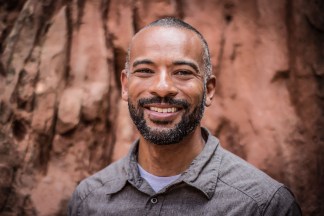By, Isam Itson III
Love is not arrogant. A loving person sees others being just as worthy of honor and regard as themselves. They give room for others to contribute to the conversation. They acknowledge the presence and value of others by soliciting their honest input. Loving people respect the obligations and concerns of others when they seek assistance or make assignments.
Many of us are only partially arrogant. We don’t think we are better than everybody. We just think we are better than the people that we disagree with. First we can’t believe that they don’t see things the way we do. Then, we start thinking less of them. Then we can only see them in light of their disagreeable opinion. Since we only see our disagreement with them it is a simple thing to reject them and discount their value. Finally, we start thinking of them as irredeemably evil.
I struggle with separating my attitude about a person’s opinion or beliefs from my judgment of their essence. I have to fight to remember that whether someone agrees or disagrees with me, they are made in God’s image and worth the life and sacrifice of Jesus Christ. God holds me accountable for that knowledge. I can’t just say it. I have to think about others and act in relationship to them in light of how much God loves them. Because God loves us in spite of our faults.
In my disagreements I need to train myself to not confuse their essence and value with their opinion. Otherwise even my relationships with those who share my opinions will remain conditional and shallow. Why? Because our relationship is dependent upon whether or not they agree with me. According to the Bible, that is evil.
This means God is going to keep bringing people we deeply disagree with into our lives at work and church and especially on our screens and through our newsfeeds. Then we have to remind ourselves to listen to them. Ask them why? Research and explore where they are coming from. Literally, where they were born, how they were raised, and what challenges they have faced in life. What experiences have led them to adopt their outlook? What appeals to them about their position? What need does it meet for them? How does their viewpoint serve their interests and address their concerns?
In this way they remain a person who possesses an opinion rather than a person who is defined by their opinion. We may find that their opinion is more reasonable than we originally thought. At the very least, we will see why their opinion makes sense to them. Then we will be able to honestly say, “I see where you are coming from. I understand.” Even if we do not agree.
Then, as followers of Jesus Christ, we take the next step and consider how God addresses that same concern in the life, teaching, example, death, and resurrection of Jesus Christ. How God meets that same need through the presence of the Holy Spirit and the power of his word. We start looking for examples that relate to God’s answer for that need in our own lives. We may discover that we have never really considered that area of our own life. Now we can thank God for using this person with whom we disagree to expose an area of our lives that we had previously been blind to or unaware of. This is how God uses the people whom we disagree with to enlighten and enrich us.
This is not quick or easy work. It takes time to listen and read and meditate and pray. It takes humility to learn another person’s viewpoint or way of life. In the process our relationship with them becomes less hostile and more respectful. Then, when we do share our perspective with them that is rooted in God’s word and connected to our life experience, they are more likely to respect us and allow us the conviction of our opinion.
Over time this provides the best opportunity for them to become convinced of the love and wisdom of God expressed to them through our relationship with them. Exercising respect for a person with whom we do not agree is one of the most meaningful ways that God shapes us more into the image of Christ, and uses us to draw others more meaningfully to himself.
It takes time, energy, and effort to respect people in a manner that honors the depth of God’s love for them and the price that he paid for all of us in Jesus Christ. If we say that is too much to ask of us then we walk away sad and unfulfilled. We may be satisfied with ourselves in the moment, but we will find ourselves far from the heart of God’s love and purpose for us. I cannot think of a more sad or unsatisfying life.
For reflection
1. Do you struggle with respecting people you do not agree with on big issues? Why or why not?
2. When you do talk to someone with a strong difference of opinion do you try to understand where they are coming from, or win them over to your opinion? Why?
3. What challenges have you faced in life and how were you raised to think about life?








































































































